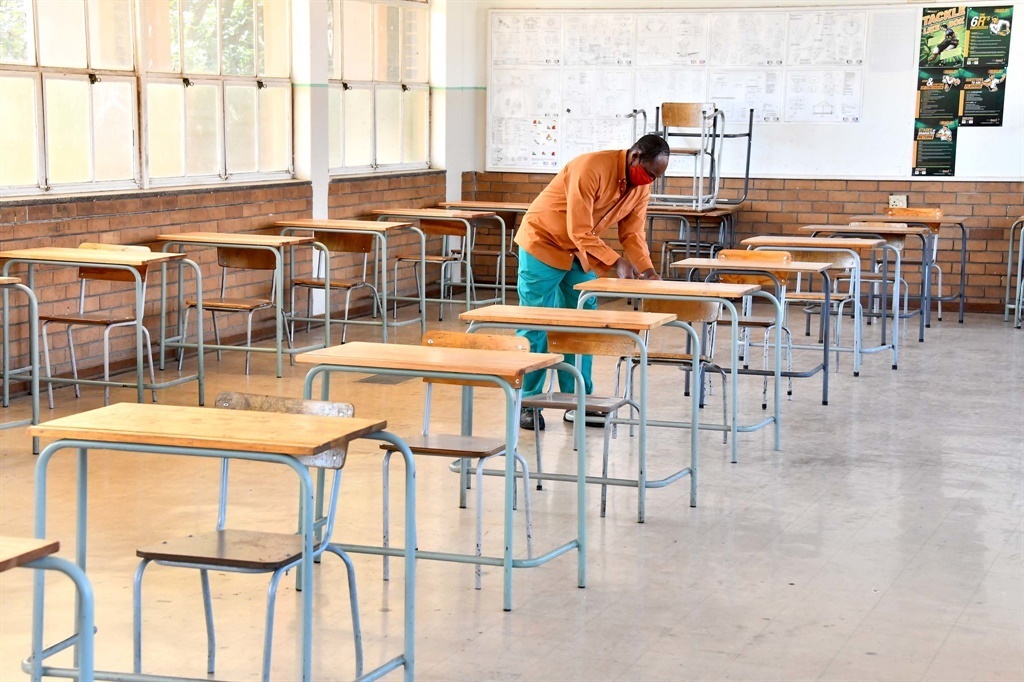
- Sixty-two percent of schools that took part in the poll have indicated that they are confident that matrics will be able to complete the curriculum to write their final exams.
- Schools, through their principals, have indicated that there is an improvement in the delivery of water tanks where they are needed.
- Schools have also indicated low pupil attendance.
Schools' access to water and screening essentials has improved and personal protective equipment has been delivered, according to a survey conducted by the country's five teacher unions.
The South African Democratic Teachers' Union (Sadtu), the National Professional Teachers' Organisation of South Africa (Naptosa), the Suid-Afrikaanse Onderwysersunie (SAOU), the Professional Educators' Union (PEU) and the National Teachers Union (NATU) conducted the survey to monitor schools' progress and their readiness to receive more pupils on 24 August.
Pupils in Grades 12 and 7 returned to school on 3 and 11 August after schools had to close on 27 July due to a surge in Covid-19 cases.
READ| Too little teaching, planning and too few classrooms - teachers' survey raises alarm
This is the fifth poll the unions conducted since May to monitor schools' readiness and their adherence to Covid-19 protocols during the pandemic.
The first three polls focused on preparations to welcome pupils for the initial reopening in June, while the fourth survey assessed other grades' state of readiness to reopen.
The results of the latest survey showed, among other things, that there was improved access to water in schools, with more than 80% of schools in seven provinces reporting adequate access.
- Less than 30% of the schools that need water tanks have received them in four provinces (the Northern Cape, the Eastern Cape, Gauteng and the Western Cape).
- There is an improvement in the number of schools that know what to do when water tanks needs to be refilled. But in three provinces, less than 50% of schools that have water tanks know what to do to ensure they are refilled.
The unions also found that more than 80% of schools in five provinces were confident that there would be adequate water on 24 August.
The survey was sent to all members, but only principals were asked to submit responses.
A total of 7 162 schools in all provinces took part in the poll, a decline from participation in the four previous polls.
The unions said fatigue might be to blame for the decrease in participation. Despite this, all surveys were reasonably representative of the national state of readiness, they added.
Although schools seemed to be ready, some were experiencing teaching and learning challenges.
Nationally, 11% of the schools which took part in the poll struggled to construct timetables because of a lack of space and teacher capacity, the poll showed.
Grade 12 examinations
The 2020 National Senior Certificate final exams are scheduled for 5 November until 15 December.
The poll showed that of the participating schools that offered Grade 12, 62% were confident that they would cover the necessary content before the exams start.
While 51% of schools were able to send work to pupils for completion at home, only 40% saw pupils complete half of the tasks given to them, the principals also reported.
ALSO READ | Unions, SGBs concerned about matric, Grade 7 attendance and space for more grades
Schools indicated that there were challenges in dealing with anxieties, exhaustion from the administrative and teaching overload and a lack of support in that regard.
Fees were not being paid at 79% of schools that were dependent on them.
"In schools that are dependent on school fees, serious problems of functionality are being experienced which may have long-term consequences for school viability, including payment of rates, lights and water, and payment of staff salaries," the poll revealed.
The unions also found through the survey that while there was greater confidence in making provision for the National School Nutrition Programme – 23% of schools indicated that they were not confident that they would be able to make meals available to all eligible pupils.


